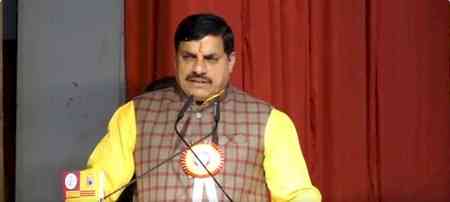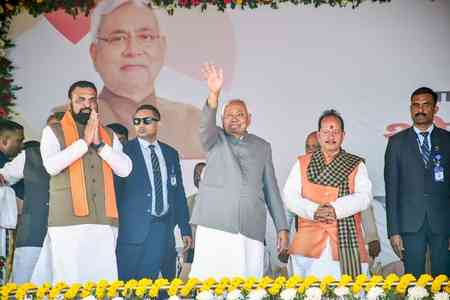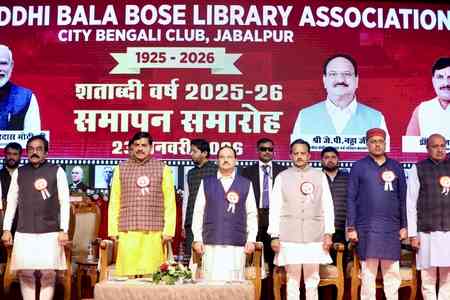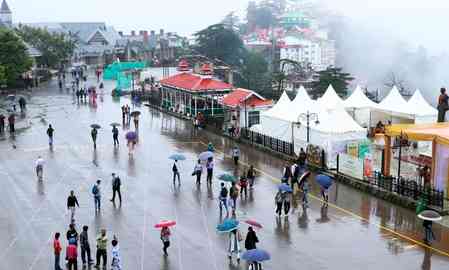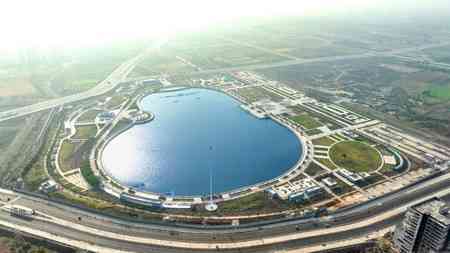Government strongly recommends policy-driven approach to holistic disease management of sickle cell disease in India
FICCI, in collaboration with Novartis, NASCO and GASCDO, hosted 2nd National Sickle Conclave to raise awareness on Sickle cell disease today

Mumbai: FICCI, in collaboration with Novartis, National Alliance of Sickle Cell Organizations (NASCO) and Global Alliance of Sickle Cell Disease Organizations (GASCDO), held the 2nd National Sickle Cell Conclave to raise awareness about Sickle Cell Disease today. The conclave, aimed at raising awareness and combat the disease, was attended by eminent speakers in the field, sparking insightful discussions on disease management in women and children.
Sickle Cell Disease (SCD) is an inherited blood disorder that poses a significant health burden to India. It is highly prevalent across central India, predominantly affecting tribal groups. Yet, it remains severely neglected. Characterized by episodes of debilitating pain, SCD prompts significant costs to the patient, health system and society. The disease is also associated with pronounced social stigma, which exacerbates patient burden and interferes with disease awareness and screening. Healthcare facilities, especially in rural areas, remain ill-equipped to support timely diagnosis and robust disease management.
Mr. Saumil Mody, General Manager, Novartis Oncology India and Member of the National SCD Council said, “At Novartis, we are committed to driving awareness and partnering with patient communities, to ensure SCD warriors are not alone in their fight. Through innovative and digitally-enabled solutions, we hope to meet our dual objectives of empowering our patients through improved SCD screening and access to advanced therapies across the country. Through various targeted initiatives like health system strengthening at the primary level, Novartis is committed to building a holistic and effective ecosystem for management of Sickle Cell Disease (SCD) in partnership with relevant stakeholders.”
There is an urgent need to recognize Sickle Cell Disease as a public health priority and ensure continued momentum across initiatives and policies with the core objectives of raising awareness, tackling stigma, expanding screening coverage and ensuring effective disease management. This can accelerate the strengthening of health infrastructure and streamline access to quality care. The SCD landscape in India is beginning to transform across the core areas of diagnosis and treatment. A combination of novel, innovative diagnostic and care solutions, especially in rural settings, multi-stakeholder partnerships and policies is crucial to effecting large-scale positive change.
Mr. Arjun Munda, Hon’ble Union Minister for Ministry of Tribal Affairs (MOTA), GoI commented, “India is making strides in Sickle Cell Disease management as we continue working towards new advancements to accelerate data collection, screening programs, awareness and newer treatment options to combat the disease in the country. We aim to scale the impact of such efforts, through various collaborations and commitment to disadvantaged communities, including tribal and non-tribal populations. SCD has also been highlighted by the Hon’ble Prime Minister who has identified the need to combat the disease through advances in treatment.”
The 2nd National Sickle Cell Conclave was convened with the hope of spearheading a vital discussion on SCD in this evolving landscape and the way forward for the same. The event was graced by speakers including Brig. Dr. Arvind Lal, Chair – FICCI Swasth Bharat Task Force and Executive Chairman, Dr Lal Pathlabs Ltd and Mr. Naval Jit Kapoor, Joint Secretary, MOTA, GoI who outlined a roadmap for India, discussing a new SCD guidelines report currently underway that will be jointly issued by MOTA and the Ministry of Health and Family Welfare. He also emphasized the key role of public-private collaborations to scale impact and benefit patients.
Speakers also included Dr. Aparup Das, Director, ICMR-NIRTH Jabalpur and Dr. Anurag Agrawal, Director, CSIR-Institute of Genomics and Integrative Biology, who discussed diagnostic and therapeutic advancements with CRISPR technology. Dr. Shailendra Hegde, Senior Vice President, Piramal Swasthya also introduced the ‘Unmukt’ project, with Mr. Arjun Munda, Hon’ble Union Minister for MOTA, GoI and Ms. Renuka Singh Saruta, Hon’ble Minister of State, MOTA, GoI, by flagging off the mobile vans for SCD screening and giving a keynote address.
Mr. Kevin Zou, Head of Oncology, Asia Pacific Cluster, Novartis and Mr. Anil Kumar Jha, Secretary, MOTA, GoI, also addressed the conclave. A poignant video message addressing the challenge of SCD from Ms. Mary Ampomah, President and CEO, GASCDO was also showcased. The event also discussed challenges and recent advancements in SCD management through a panel discussion with health experts in the field, moderated by Ms. Vinita Srivastava, Tribal Health Cell, MOTA, GoI and Dr. Tulika Seth, Professor Haematology, AIIMS. The panel explored the need to augment awareness, introduce effective preventive, management and novel treatment initiatives with a focus on women and children, including the need to scale neonatal and pregnancy screening.
Mr. Gautam Dongre, Member Secretary of National Alliance of Sickle Cell Organisations (NASCO), is the father of 2 sickle cell patients. According to him, "Inclusion of patient's and caregiver's voice is essential to frame and implement any policy for the Sickle Cell Disease (SCD) community across India. Our mission is to ensure every Sickle Cell Disease warrior across India lives a pain-free life and gets timely access to comprehensive quality care & treatment at all healthcare facilities."


 cityairnews
cityairnews 
